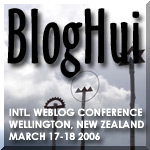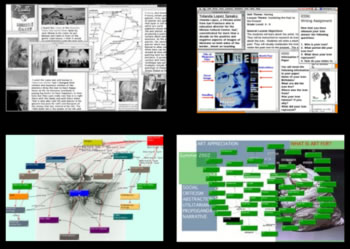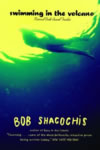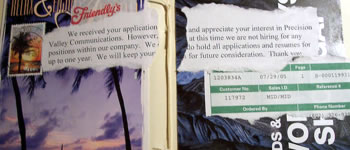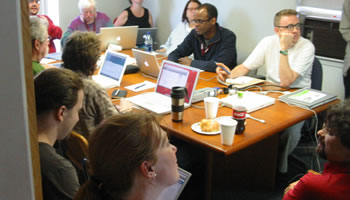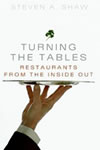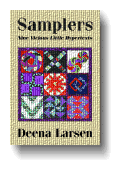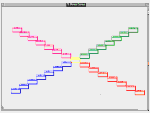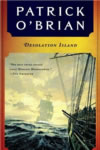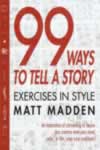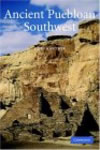Via Doc Searls, a California company has rediscovered the concept of generic links, an area of active hypertext research for some twenty years. Frode Hegland makes the case for ending the tyranny of the link. He asks,
Instead of making a few words special and interactive, instead of making the author have to decide on all the useful navigation options, why not make all the links interactive?
He calls this HyperWords™; the hypertext research literature has been calling these "generic" or "contextual" links, or more generally "intensive" links, since the late 1980's.
Generic links establish a connection from any occurrence of a string -- perhaps qualified by its context -- to one or more destinations. For example, any word might be linked to a search engine and an encyclopedia entry, while anything that resembles a name might be linked to a telephone directory. Complex rules have been explored -- for example, references to "Jobs" and "Gates" might be treated one way in the domain "wired.com" and in another way entirely in "householdTasks.org".
Storyspace gets a lot of mileage from generic links -- particularly from its unique combination of generic and point-to-point links called guard fields. Joyce's classic afternoon, a story is constructed entirely from highly specific and carefully-crafted generic links: you can click on any word in afternoon and the hypertext will respond.
It can be a useful idea, but generic links raise some knotty problems:
- You're not linking to words, you're linking to character sequences that represent words -- often ambiguously. The string "Washington" might be a city, a state, George, Booker T. , the Nats, or the Redskins.
- Authors don't offer navigation options to be "useful"; thoughtful writers use links to express ideas. Argumentation seeks understanding, not merely access.
- Adding annotation through generic links that were not anticipated by the original writer can be pernicious. If the link server were controlled, say, by Microsoft or by the State, then they could add supportive links to arguments with which they agreed and offer counter-arguments for those which did not coincide with their interests. (Ted Nelson, who is listed on the HyperWords™ advisory board, has been making this argument for thirty years.)
- There's some connection between HyperWords™ and a research program at University College London on "Liquid Information". This project, confusingly, seems to have nothing at all to do with Polle Zellweger's well-known work on liquid hypertext.
In the very early days of hypertext research, people worried a lot about hand-crafted links. "How will we ever afford to put in all those links?" We also worried about how we'd ever manage to afford to digitize stuff for the Web, not to mention paying people to create original Web pages. Overnight, we discovered that we'd got the sign wrong: people would pay for the privilege of making Web sites.
The problem isn't the 'tyranny' of the links, and replacing it with the tyranny of the link server might not be a great solution.
